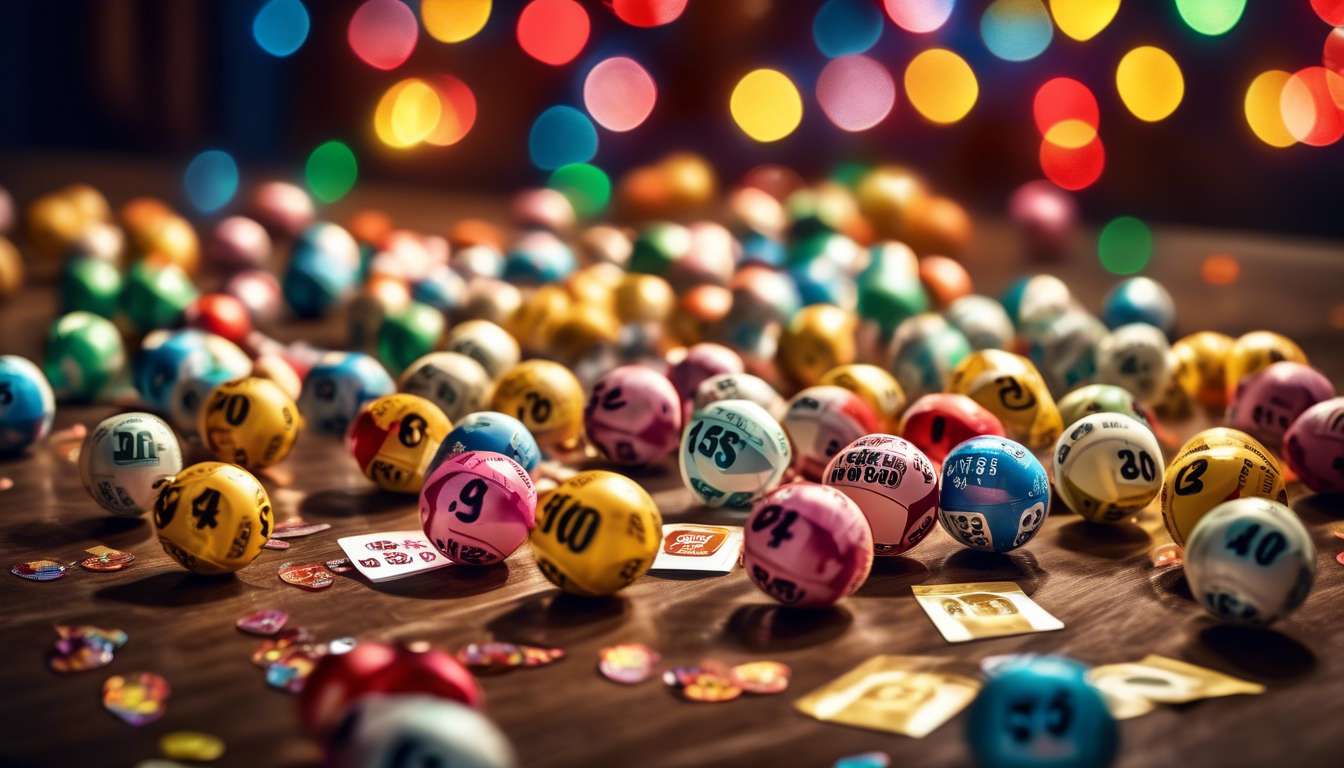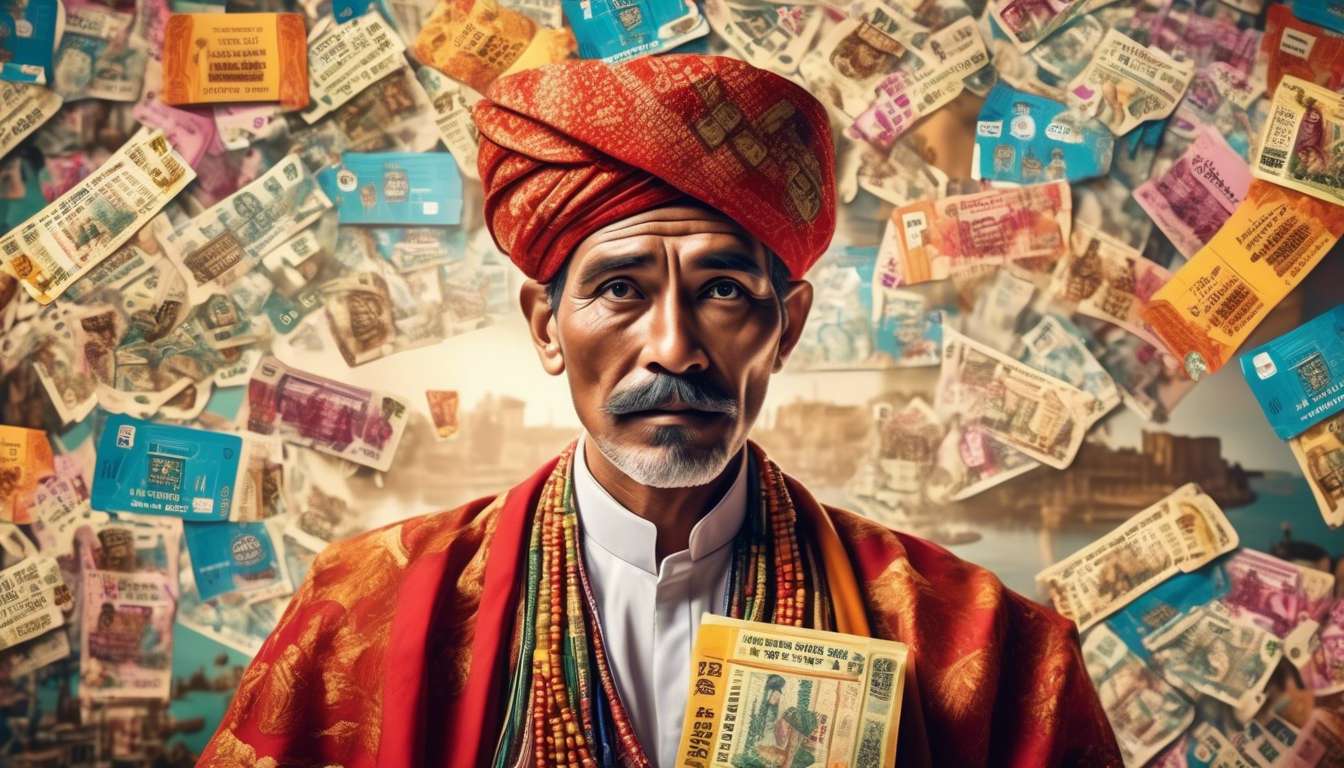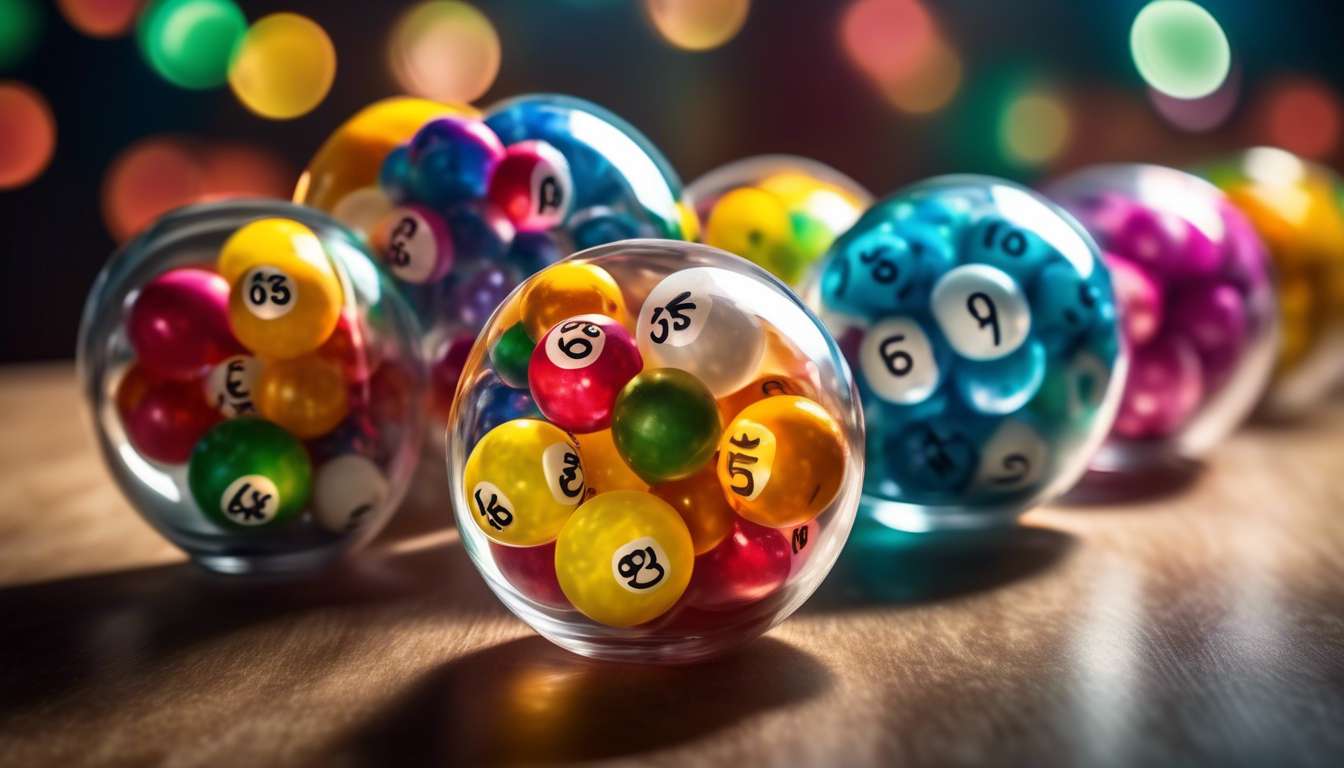As we embark on a journey across the globe, exploring the fascinating world of lottery gambling, we find ourselves captivated by the diversity of practices and attitudes that define this universal pastime. It’s intriguing how something as simple as buying a ticket can manifest so differently from one culture to another.
Together, we’ll delve into the unique ways people play, win, and celebrate the lottery, uncovering the cultural nuances that make each approach distinctive. From the bustling streets of Tokyo, where technology and tradition intertwine, to the vibrant, hopeful gatherings in the heart of Rio de Janeiro, we see a kaleidoscope of dreams and aspirations.
Our exploration will highlight five captivating differences in lottery gambling that not only reveal the varied ways in which we pursue luck but also offer a glimpse into the values and hopes that unite us all in this shared pursuit of fortune.
-
Cultural Beliefs and Superstitions: Different cultures have unique beliefs and superstitions surrounding numbers and luck, influencing how people choose their lottery numbers.
-
Methods of Participation:
- In some regions, technology plays a significant role, with online and app-based lottery systems.
- In others, traditional paper tickets remain popular, often sold in local markets or dedicated lottery shops.
-
Celebration of Wins:
- Some cultures celebrate lottery wins with communal gatherings and public announcements.
- Others prefer privacy, with winners often remaining anonymous to avoid public scrutiny.
-
Government Involvement and Regulation: The degree of government involvement can vary greatly, from state-run lotteries that fund public projects to private lotteries with minimal regulation.
-
Social and Economic Impact:
- The impact of lotteries can differ, with some societies viewing it as a form of entertainment and others as a significant economic opportunity or a means of social mobility.
By examining these differences, we gain insight into not only the varied practices of lottery gambling but also the underlying cultural values and aspirations that drive people worldwide.
Beliefs and Superstitions
Many people around the world hold unique beliefs and superstitions when it comes to playing the lottery.
We find comfort in rituals, like picking numbers based on birthdays or dreams, hoping they’ll bring us luck. These superstitions are a way to connect with each other, sharing stories and strategies in our communal quest for that elusive win. It’s fascinating how these beliefs transcend borders, creating a global tapestry of hope and anticipation.
Despite the prevalence of superstitions, lottery systems are strictly regulated.
Regulations ensure fairness and transparency, allowing us to trust the process even as we hold onto our lucky charms.
Technology plays a significant role in maintaining this trust.
- Advanced systems monitor lottery operations
- Ensure everything runs smoothly
- Prevent manipulation
As we adapt to new technological advancements, our shared beliefs and rituals persist, offering a sense of continuity and camaraderie.
Together, we navigate this blend of tradition and innovation, united by the dream of winning big.
Participation Methods
Players worldwide have various methods to participate in lotteries, ranging from traditional ticket purchases to online platforms. Technology has reshaped our lottery experiences, allowing us to connect to global jackpots with a simple click.
Yet, amidst this technological advancement, some of us still cherish the ritual of buying a paper ticket, fueled by superstitions and cherished numbers that hold personal significance.
Regulations vary greatly across different regions, influencing how we participate:
- In some countries, strict regulations require us to purchase tickets only from authorized physical outlets.
- Meanwhile, other regions embrace online lotteries, where technology ensures security and accessibility for all of us, no matter where we are.
Our diverse methods of participation highlight our shared love for the thrill of possibility. Whether we stick to age-old traditions or fully embrace the digital age, we find unity in the global lottery community, each of us holding onto the dream that our numbers might just be the lucky ones.
Celebration of Wins
Winning the lottery is a moment of sheer joy and excitement that brings us together in celebration. Around the world, the ways we mark these wins can vary greatly.
Cultural Influences:
- In some cultures, superstitions play a big role in how we celebrate.
- We might gather with family and friends, sharing traditional foods believed to bring luck and prosperity.
Technological Influences:
- Technology influences our celebratory practices, allowing us to instantly share our good fortune through social media or digital gatherings.
- This enables even distant friends to be part of our joy.
Regulatory Influences:
-
Regulation can shape our celebrations significantly.
-
In countries with strict privacy laws, we may choose to keep our wins low-key, sharing the news only with close-knit circles due to concerns about safety and unwanted attention.
-
Conversely, in places where public announcements are part of the regulation, winning becomes a community event, celebrated openly with neighbors and local media.
-
Community Impact:
- Regardless of the method, these celebrations strengthen our sense of belonging and community spirit.
Government Involvement and Regulation
Governments around the world play a crucial role in shaping lottery operations through various regulations and policies. These rules are designed to ensure fairness and protect participants. Regulations vary greatly, reflecting each nation’s unique cultural fabric. In some countries, superstitions influence lottery choices, and governments may impose specific guidelines to accommodate these beliefs.
In our modern world, technology has become integral to lottery operations. Governments have been embracing digital platforms to enhance transparency and security, ensuring we can engage confidently. These advances make lottery participation more accessible, allowing us to connect with others who share our interests, regardless of geographic boundaries.
Together, we navigate these regulations, understanding they’re crafted for our collective benefit. Whether it’s implementing age restrictions or establishing fair play protocols, governments strive to maintain a balanced environment. As we engage in this shared pastime, we’re united by the rules and advancements that shape our lottery experiences worldwide.
Social Impact
Lotteries profoundly affect our communities by funding public projects and influencing socio-economic dynamics. We see how they bring us together, fostering a sense of shared excitement and hope.
However, the social impact of lotteries isn’t just about the thrill of the draw; it also touches upon our beliefs and practices. Many of us have superstitions around numbers, rituals, or even lucky charms that we swear by when purchasing tickets. These cultural practices enrich our collective experience and add a layer of personal connection to the lottery.
Regulation plays a crucial role in ensuring fairness and preventing exploitation in the lottery world. By establishing clear rules, governments aim to protect us from potential pitfalls while still allowing us the joy of participating.
Technology has transformed our lottery experience, making it more accessible and transparent. Online platforms facilitate easier access, allowing us to engage in lotteries beyond local boundaries, thus broadening our community and strengthening our sense of belonging.
Economic Impact
Lotteries significantly boost local economies by generating revenue for public services and creating jobs within the industry. These funds enhance our communities by supporting:
- Education
- Healthcare
- Infrastructure projects
It’s not just about the thrill of winning; it’s about contributing to the collective wellbeing.
Our shared superstitions often drive participation, fostering a sense of cultural unity and shared hope, where we all dream of that life-changing moment together.
Regulation plays a crucial role in ensuring fair play and safeguarding our investments. By establishing clear guidelines, we protect both players and the economy from potential pitfalls. These rules help maintain:
- Trust
- Integrity
This ensures that the revenue generated is used effectively for public benefits.
The role of technology is vast, and its current influence is seen in how it enhances accessibility and streamlines operations. As we continue to engage with lotteries, we’re participating in an economic cycle that benefits us all.
Technology in Lottery
In today’s digital age, we’ve embraced innovative technologies that make participating in lotteries more convenient and secure than ever before.
As a global community, we no longer need to rely solely on paper tickets or physical lottery outlets. Instead, we can join online platforms that allow us to play from anywhere, fostering a sense of belonging among lottery enthusiasts worldwide. These platforms leverage technology to ensure fair play and enhance the lottery experience.
Despite the rise of technology, superstitions still play a significant role in how people choose their numbers. It’s fascinating to see how cultural beliefs intertwine with modern advancements.
However, with great power comes great responsibility, and that’s where regulation steps in. Governments and lottery organizations worldwide are implementing strict regulations to ensure transparency and fairness, protecting us from potential fraud and disputes.
Technology continues to bridge gaps, bringing diverse lottery cultures together while respecting traditions and ensuring a fair playing field for all of us.
Privacy and Anonymity
In our increasingly interconnected world, maintaining privacy and anonymity in lottery participation is becoming both a priority and a challenge. As lottery enthusiasts, we often grapple with the balance between enjoying the thrill of the game and safeguarding our personal information. Technology plays a dual role here:
- It offers us the tools for secure participation.
- It poses risks of data breaches.
Different countries approach this balance with varied regulations. In some places, winners must publicly disclose their identities, often due to superstitions that transparency ensures fairness. Other regions prioritize anonymity, allowing winners to keep a low profile to avoid unwanted attention and potential security threats.
We find ourselves part of a community where our shared passion for lotteries intersects with the desire for privacy. By understanding the global landscape, we can appreciate the diverse ways people manage these concerns.
We can advocate for regulations that:
- Respect our excitement for lotteries.
- Ensure our need for discretion is met.
This understanding helps us navigate the complexities of participating in lotteries while maintaining our privacy.
What are the historical origins of lottery gambling across different cultures?
When exploring the historical origins of lottery gambling across different cultures, we find fascinating stories. Lotteries have deep roots in various societies, serving both as a means of raising funds for public projects and as a form of entertainment.
Understanding these diverse beginnings gives us a glimpse into the evolution of gambling practices worldwide. It’s intriguing to see how lotteries have been woven into the fabric of different civilizations throughout history.
Key Points:
-
Fundraising for Public Projects:
- Lotteries have historically been used to finance public works, such as infrastructure and community projects.
- This practice allowed societies to pool resources in a manner that was both engaging and voluntary.
-
Entertainment:
- Beyond their utility, lotteries have also provided a source of amusement and excitement for participants.
- The chance element and potential for reward have made lotteries a popular pastime across cultures.
Exploring these aspects highlights the cultural significance of lotteries and their enduring appeal throughout the ages.
How do different countries tax lottery winnings, and what are the implications for winners?
When we win the lottery, different countries tax our winnings in various ways. This can greatly impact the amount we actually receive.
Tax Approaches:
- Some places have no tax on lottery winnings.
- Others impose substantial taxes that can significantly reduce the final payout.
Importance of Understanding Tax Implications:
- Planning: It’s important for us as winners to understand these tax implications beforehand.
- Maximizing Windfall: With this knowledge, we can plan accordingly and make the most of our windfall.
Understanding the tax landscape in the country where we win is crucial for informed financial decisions.
Are there psychological effects on individuals who frequently play the lottery?
Playing the lottery frequently can have psychological effects on us.
Positive Effects:
- It can create a sense of hope and anticipation.
Negative Effects:
- It can lead to disappointment and frustration if we don’t win.
- This cycle of emotions can impact our mental well-being.
- It can also influence our financial decisions.
Recommendations:
- Be mindful of how lottery play affects your mindset.
- Seek balance in enjoying the game without letting it consume you.
Conclusion
In conclusion, lottery gambling around the world showcases fascinating differences in beliefs, methods, celebrations, regulations, and impacts.
From diverse superstitions to varying government involvement, each country adds its unique flair to this popular form of entertainment.
As technology continues to evolve, the lottery landscape is bound to transform even further, impacting privacy and anonymity.
Whether you’re a player or an observer, the global lottery scene offers a rich tapestry of cultural nuances to explore.




